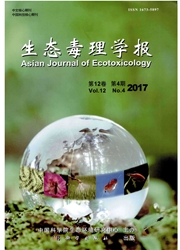

 中文摘要:
中文摘要:
非点源污染目前已经成为影响水体环境的重要污染。微生物源示踪技术(microbial source tracking,MST)是解决非点源污染的一项新技术,它可以确定污染的宿主来源。肠球菌esp基因和多瘤病毒JCV可以作为检测水体中人源粪便污染的分子标记,其灵敏度和特异性都很高。为分析五大流域水源地是否受到人源粪便的污染,对辽河、海河、淮河、长江和黄河五大流域典型水源地水样进行采集和检测,选取人源粪便特异病原微生物肠球菌的esp基因和多瘤病毒JCV建立了相应的MST分子检测方法。结果表明,五大流域的典型水源地采样点均有可能受到了人源粪便的污染,可为当地相关部门提供技术支持和数据参考。
 英文摘要:
英文摘要:
Currently, non-point source pollution has become the major problem of the water environment. Microbial source tracking(MST) was a novel technique in solving non-point source pollution, which can determine the source of pollution. To study the effect of human fecal contamination in main water source, we selected specific pathogen Enterococcus esp gene and polyomavirus JCV as molecular markers to establish the molecular tracking methods.The markers exhibited high specificity and sensitivity. Five river basins including Liaohe River Basin, Haihe River Basin, Huaihe River Basin, Yangtze Basin and Yellow River Basin were analyzed by the methods. Our results suggested that all of the five typical water sources might have been polluted by human feces contamination. These data can provide important information and technical support for further research.
 同期刊论文项目
同期刊论文项目
 同项目期刊论文
同项目期刊论文
 Rapid and sensitive detection of human astrovirus in water samples by loop-mediated isothermal ampli
Rapid and sensitive detection of human astrovirus in water samples by loop-mediated isothermal ampli 期刊信息
期刊信息
